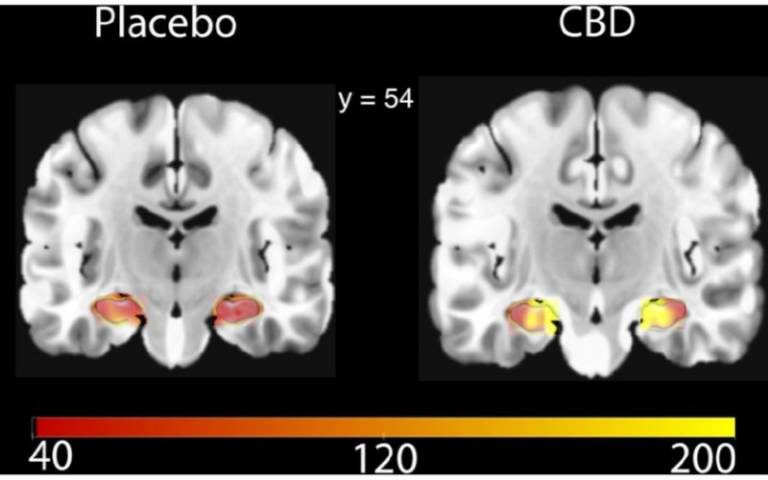The hippocampus, according to the press release, is associated with memory and emotion. These findings, therefore, could be an important discovery for conditions like Alzheimer’s disease and PTSD—conditions that affect memory.
Dr. Michael Bloomfield, lead author of the study, associated with UCL Psychiatry, explained in the press release: “There is evidence that CBD may help reduce symptoms of psychosis and anxiety. There is some evidence to suggest that CBD may improve memory function. Additionally, CBD changes how the brain processes emotional memories, which could help to explain its reputed therapeutic effects in PTSD and other psychiatric disorders. However, the precise mechanisms underlying the effects of CBD on memory are unclear.”
Related: Study Lists Potential Drug Interactions with Cannabinoid Products CBD May Help Prevent Lung Destruction in COVID-19, Researchers Report Hawaii Becomes Latest State to Propose CBD Regulations
15 healthy young adults participated in the randomized controlled study. On different occasions, separated by at least a week, each participant as given a 600mg dose of either oral CBD or a placebo. Researchers measured blood flow to the hippocampus using an MRI brain scanning technique called Arterial Spin Labelling, which measures changes in the blood oxygen levels.The hippocampus is part of the medial temporal lobe—but while blood flow to the hippocampus increased, blood flow didn’t increase in any other regions of that lobe. CBD also caused an increase in blood flow to the orbitofrontal cortex, part of the prefrontal cortex, the area of the brain used for planning and decision making.
Dr. Bloomfield explained: “To our knowledge, this is the first study to find that CBD increases blood flow to key regions involved in memory processing, particularly the hippocampus. This supports the view that CBD has region-specific blood flow effects in the human brain, which has previously been disputed. If replicated, these results could lead to further research across a range of conditions characterized by changes in how the brain processes memories, including Alzheimer’s disease, where there are defects in the control of blood control flow, along with schizophrenia and post-traumatic stress disorder.”
The press release did note that the study had some limitations—besides a small number of participants, the study used only a single dose of CBD in healthy volunteers, which may not predict the effects of repeated CBD dosing.










